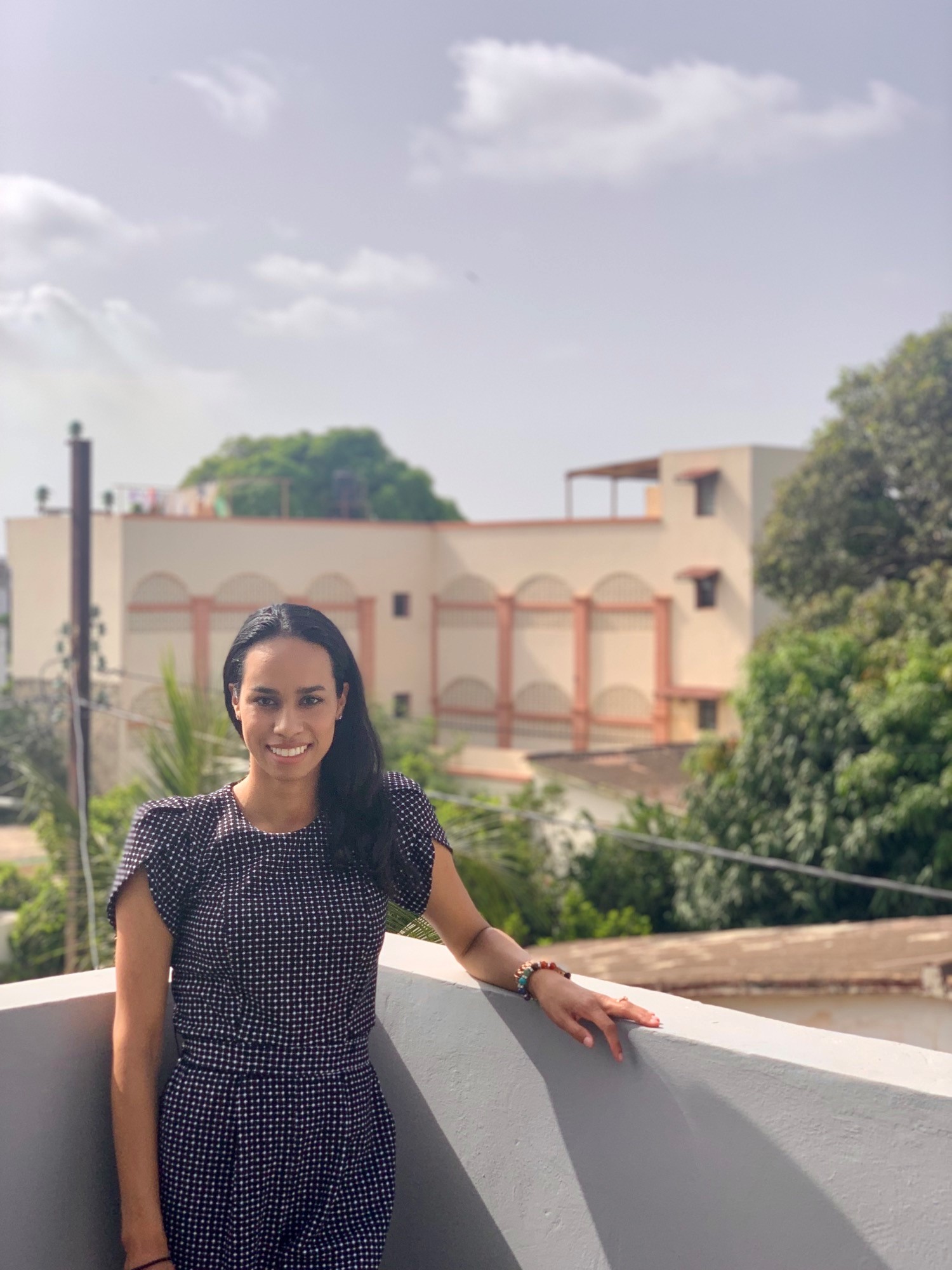
I fling open the black metal front gate, and the bright morning sun greets me. I begin walking down the bustling street, passing taxi cabs, noisy buses, horse-drawn carts of materials and wares, bleating goats, and workers starting their days. I traverse over broken concrete and tile sidewalks, my striped linen pants grazing across the warm, dusty sand. Friend, I have a feeling I’m not in Virginia anymore!
Early in February, I opened an email about a library fellowship opportunity in Dakar, Senegal. I glanced down at the application deadline, and quickly realized it was due in FIVE days. In typical Olivia fashion, I took a deep breath and went for it. I completed the application, submitted my resume, drafted a personal statement, provided my undergraduate and graduate transcripts, and secured three letters of recommendation.
I received an email two months later stating I was the 2021 West African Research Center Library Fellow. I was shocked, surprised, and speechless. Unbeknownst to me at the time, I would soon be experiencing one of the most impactful experiences of my professional and personal life.
The West African Research Association (WARA) is an organization dedicated to the awareness and research of West Africa and the diaspora. Through its fellowships, conferences, and publications, researchers and professionals have the opportunity to exchange research and ideas. The West African Research Center (WARC) in Dakar is the international headquarters, and it provides a multi-use facility, wireless Internet access, and an on-site café. International users and collegiate locals alike frequent the center.
WARA provides fellowship opportunities for graduate and doctorate students as well as library scholars. The Library Fellowship is an opportunity for graduate students and working professionals to experience West Africa, visit WARC, and assist the library staff in their goals and endeavors, all with travel expenses covered and a stipend provided.

The West African Research Center’s Library where I worked and completed my fellowship.
In late July, I arrived in Dakar. After a two-hour lost luggage issue, I found my taxi driver, and we were on our way to meet my host family. We reached the gargantuan gray multi-level home with matching gray wall around the property and a striking black metal front gate. The family ushered me in, leading me to my third-floor bedroom complete with a balcony and private bathroom. My home for the next two months.
I walked one and a half miles, each way, to the research center five days a week. I skipped out on taxis the majority of the trip—partly because my French and Wolof language skills were so limited—but also to experience the city in its totality. I finally understood the old adage of walking uphill to school both ways. It was immensely hot, with lively streets, filled with plenty of people, vehicles, and animals.
While at WARC, I observed the library in action, I surveyed graduate and PhD students on their experiences with the library, added in newly acquired items into their digital database, and learned about their visions for the space. After weeks of watching, learning, and discussing, I put together an eighteen-page report of ideas and recommendations for the library to continue to advance.

On Gorée Island at the ‘Door of No Return’.
I was invited to lunch each day at the on-site café. I took Wolof language lessons twice a week. I even toured the city every weekend with three new friends—two Senegalese women from WARC and an anthropology PhD student. We met a world-class photographer and her husband, the champion surfer of Senegal. We visited visited Gorée Island, the home of the ‘House of Slaves’ and the ‘Door of No Return.’ We visited the local markets, the beaches, the African Renaissance Monument, and the Black Civilizations Museum. We discussed life in Dakar, the various ethnic groups in the country, the languages spoken, the foods served, the triumphs of their people, and the developments still to come.
Make no mistake though, it was one of the most challenging experiences of my life. I had reactions to the prescribed anti-malaria medication, mosquitos were everywhere, and I unfortunately got food poisoning on day forty-six out of forty-nine. I had language barriers with my host family and around town, and there were many cultural differences to become accustomed to (like eating dinner with my host family at ten at night).
I learned about the Senegalese culture, customs, and of course—myself. I learned I need to slow down, practice more patience, and that it is okay to sound silly practicing new languages with native speakers. And it’s even more okay to advocate for what is important to me. It was the opportunity of a lifetime, and I look forward to carrying those life lessons with me. As my favorite brunch café has painted on their wall, “From Dakar, With Love.”
Ba beneen yoon (Wolof for “until next time.”)
– Olivia Hasan, Children’s Librarian, Hampton Public Library & Virginia Library Association Librarians of Color Forum Chair






